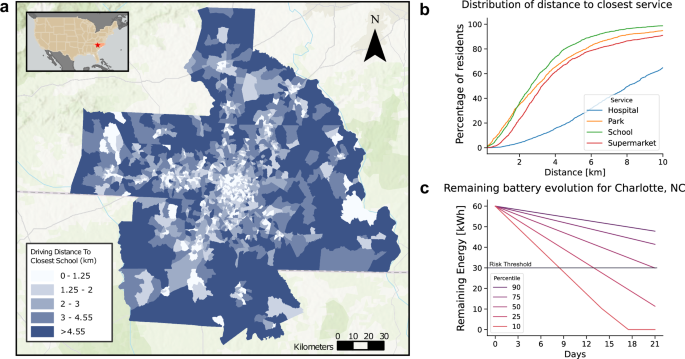The Emissions Benefits of Electric Vehicles in Ride-Hailing Services: Insights from Jenn’s 2020 Study
In recent years, the rise of electric vehicles (EVs) has sparked significant interest in their potential to reduce greenhouse gas emissions and improve air quality. A pivotal study by Jenn A. in 2020, titled "Emissions benefits of electric vehicles in Uber and Lyft ride-hailing services," published in Nature Energy, sheds light on the environmental advantages of integrating electric vehicles into ride-hailing platforms like Uber and Lyft. This article delves into the key findings of Jenn’s research, the implications for urban transportation, and the broader context of electric vehicle adoption.
Understanding the Context
The transportation sector is a major contributor to global greenhouse gas emissions, accounting for approximately 24% of total emissions in the United States alone. As urban populations grow and ride-hailing services become increasingly popular, the environmental impact of these services has come under scrutiny. Traditional gasoline-powered vehicles contribute significantly to air pollution and climate change, prompting the need for cleaner alternatives.
Key Findings of the Study
Emissions Reduction Potential
Jenn’s study highlights that the adoption of electric vehicles in ride-hailing services can lead to substantial reductions in emissions. The research estimates that if Uber and Lyft were to transition their fleets to electric vehicles, it could result in a reduction of up to 50% in greenhouse gas emissions compared to conventional gasoline vehicles. This reduction is particularly significant in urban areas, where ride-hailing services are most prevalent.
Air Quality Improvement
In addition to reducing greenhouse gas emissions, the study emphasizes the positive impact of electric vehicles on local air quality. Traditional vehicles emit pollutants such as nitrogen oxides (NOx) and particulate matter (PM), which are harmful to human health. By replacing these vehicles with electric alternatives, ride-hailing services could contribute to cleaner air, reducing respiratory illnesses and improving public health outcomes.
Economic Considerations
The transition to electric vehicles in ride-hailing services is not only an environmental imperative but also an economic opportunity. The study suggests that ride-hailing companies could benefit from lower operating costs associated with electric vehicles, including reduced fuel and maintenance expenses. Furthermore, as battery technology continues to advance and costs decline, the economic viability of electric vehicles will only improve.
Implications for Urban Transportation
Policy Recommendations
Jenn’s research underscores the importance of supportive policies to facilitate the transition to electric vehicles in ride-hailing services. Governments can play a crucial role by providing incentives for electric vehicle adoption, investing in charging infrastructure, and implementing stricter emissions regulations for ride-hailing companies. Such measures can accelerate the shift towards a more sustainable urban transportation system.
Consumer Behavior
The study also highlights the need for consumer awareness and education regarding the benefits of electric vehicles. As ride-hailing services increasingly offer electric options, consumers must be informed about the environmental advantages and potential cost savings associated with choosing electric rides. This awareness can drive demand for electric vehicles and encourage ride-hailing companies to expand their electric fleets.
The Broader Context of Electric Vehicle Adoption
Global Trends
The findings of Jenn’s study align with global trends towards electrification in transportation. Many countries are setting ambitious targets for electric vehicle adoption, with some aiming for all new vehicles to be electric by 2030 or 2040. As cities worldwide grapple with the challenges of climate change and urban air pollution, the transition to electric vehicles is becoming a central component of sustainable urban planning.
Challenges Ahead
While the potential benefits of electric vehicles in ride-hailing services are clear, challenges remain. The availability of charging infrastructure, the need for grid upgrades to accommodate increased electricity demand, and the environmental impact of battery production are all critical considerations that must be addressed. Policymakers, industry stakeholders, and researchers must work collaboratively to overcome these hurdles and ensure a successful transition to electric mobility.
Conclusion
Jenn A.’s study on the emissions benefits of electric vehicles in ride-hailing services provides valuable insights into the potential for cleaner urban transportation. By highlighting the significant reductions in greenhouse gas emissions and improvements in air quality, the research underscores the importance of transitioning to electric vehicles in the ride-hailing sector. As cities continue to evolve and face pressing environmental challenges, embracing electric mobility will be essential for creating sustainable and healthy urban environments. The path forward requires concerted efforts from policymakers, industry leaders, and consumers alike to realize the full potential of electric vehicles in transforming urban transportation.

